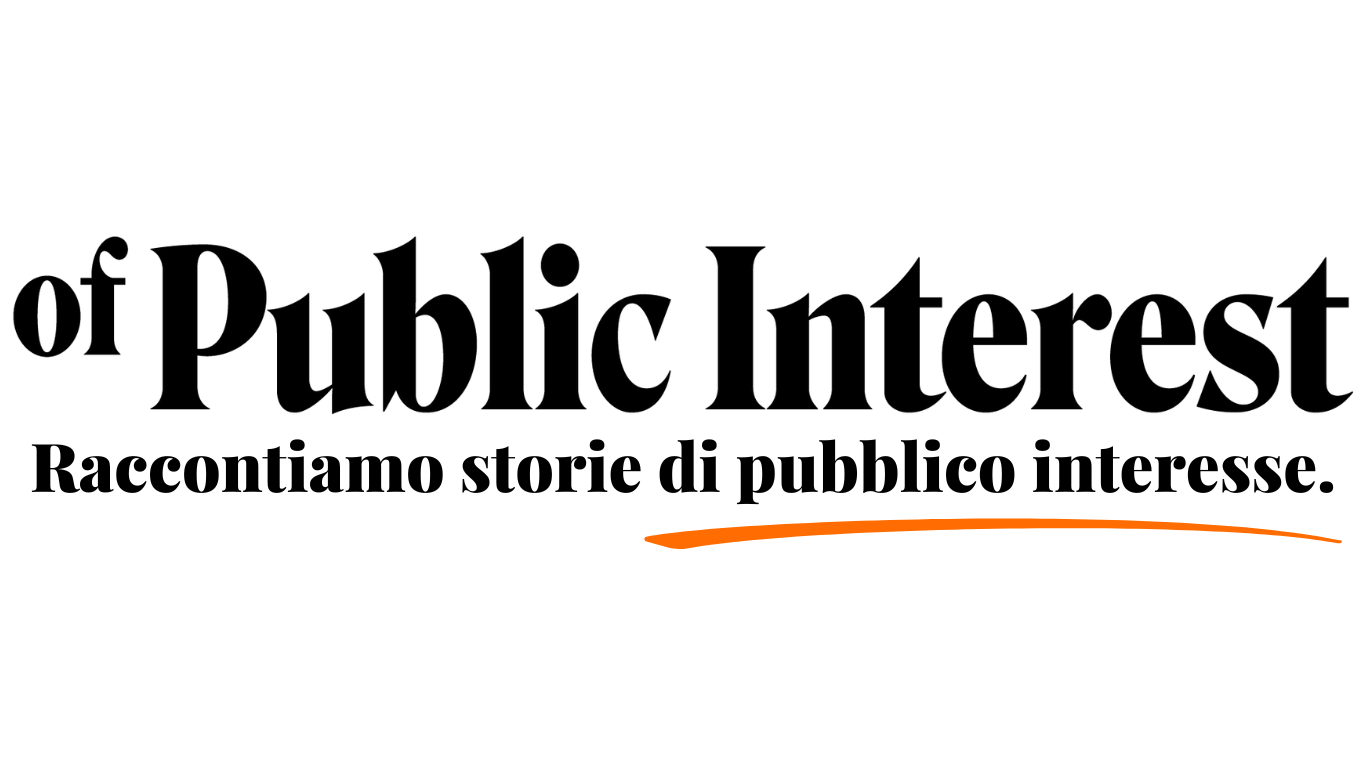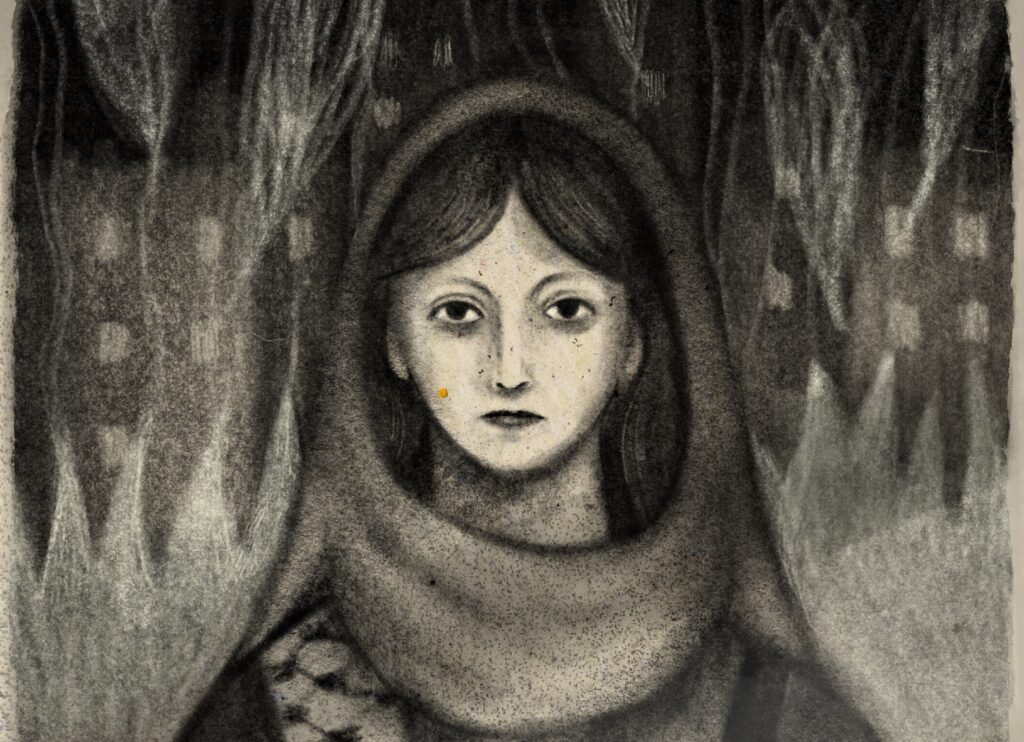“The Palestinian question was not born on October 7, let’s not kid ourselves. The Palestinian question was born in 1948.”
These are the words of Jamal Qaddorah, one of the voices of the Palestinian diaspora in Campania. We decided to interview him, because the presence of the Palestinian question in the fabric of the city of Naples also began, not six months ago, but in the 1990’s.
Jamal Qaddorah has lived in Naples for more than 40 years. From a family originally from the city of Ramla, now located in Israel, he has been a Palestinian refugee since birth. Although he grew up in Jordan, Jamal, like so many others, maintains an unbreakable bond with his homeland.
Like him, many of the members of the Palestinian community settled permanently in Naples when, after finishing their studies, the Palestinian Students Union became the Palestinian Community of Campania in 1998. A community of about 60 people that today is no longer composed only of students, but of doctors, entrepreneurs, trade unionists, and professionals.
Italians, indeed, Neapolitans, united by having their origins in a land that has always been a symbol not only of suffering but also of resistance.
Jamal traces the long history of oppression, of forced expulsions that has affected the Palestinian people over the past 75 years. The first exodus is that of ’48, also called the Nakba (lit. the catastrophe), during which 750,000 Palestinians were expelled from 78 percent of the territory of historic Palestine. Then in 1967, during? the war and subsequent occupation of Gaza and the West Bank territories by the Israeli army. In 1982, the war followed the Palestinians out of Palestine, with the Israeli invasion of Lebanon, ending in the horrific massacre of thousands of defenceless Palestinian refugees by the Israeli army and Lebanese Phalangist allies (Ari Folman’s documentary, Waltz with Bashir, is worth watching on this latter war).
The 1990s ushered in with peace agreements between the Palestine Liberation Organization (PLO) and the Israeli government, a long and difficult process that ended with the creation of the Palestinian National Authority (PNA). The establishment of a Palestinian national entity to rule over the occupied territories was greeted as a failure of negotiations that failed to secure either the creation of a sovereign state or an end to the occupation. The discontent aroused by the PLO’s adoption of a more pragmatic stance encouraged the emergence of more radical groups during this period, including Islamist-inspired groups.
“Jamal, this may sound like a trivial question, perhaps many people will have asked you, but how do you stand in relation to October 7?”
“If you take any Palestinian who wants to defend Palestine, no one would condemn October 7.”
As a leftist and trade unionist, Jamal does not share anything about Hamas’ politics, nevertheless he does not condemn their actions. He has been in charge of immigration for CGIL Naples and Campania for years and is now INCA‘s coordinator. His priority today is to stop the war and build peace, which consists of ending the Israeli occupation and creating a secular Palestinian state where people of all religions can live together.
Hamas’ violence, from his perspective, is the result of more than 75 years of oppression, a reality that has become entrenched in Gaza due to a series of political failures and the trauma of a generation of boys who grew up in an open-air prison. A cycle of violence and revenge that keeps repeating itself and must be broken for the well-being of the Israeli and Palestinian peoples.
Why then has the Israeli government not really tried to destroy Hamas until October 2023?
Jamal’s generation, which grew up with communist- and socialist-inspired Palestinian resistance groups, remembers well how the political climate changed in the late 1980s. Before the end of the Cold War, the main goal of Israel and the United States was to prevent the spread of communist-inspired ideas and groups that could undermine the foundations of the Western bloc. At that time, Islamist-inspired groups were considered a minor enemy because they did not undermine the bloc’s strategic interests. Indeed, the presence of Islamist groups was useful because it confirmed the narrative that the conflict in Israel/Palestine was a conflict between Jews and Muslims, rather than an issue of apartheid and occupation. To continue to keep the Palestinian people divided, the Israeli government has supported the rise of Hamas over the past two decades, turning a blind eye to money flows from Iran and Qatar, and fomenting divisions between secular and Islamist groups.
“If we were all pacifists, Israel would have no justification. It seems that Israel does not want to stop the war, because if Israel stopped the war, the settlers’ government would fall.”
According to this interpretation of the facts, Israel has no intention of ending hostilities because it would mean accepting that the Palestinian people will not disappear, and that peace means justice and compromise. On the contrary, the Palestinian enemy, yesterday embodied by Fatah (a socialist-inspired party) and today by Hamas, allows a right-wing government to continue to justify apartheid policies and remain in power.
On Oct. 29, 2023, two days after Israeli troops began their ground operation in Gaza, ENI was granted – along with other Western companies – a license to explore gas in the eastern Mediterranean.
But it is not just about the gas; it is also about the sale of arms. According to Sipri, the United States, Germany, the United Kingdom and Italy are the countries supplying the most weapons to Israel. As of December 2023 alone, Italy has sold 1.41 million in weapons, three times more than in December 2022.
“The gas is ours, not Israel’s. From this point of view, it is an economic issue. And economic interests are part of Western hypocrisy. When now [Western governments] talk about human rights, we laugh.”
The Palestinian people are an obstacle to the exploitation of land from an economic point of view, not only by Israel but the entire Western bloc. The Western hypocrisy is that of governments preaching democracy and freedom while refusing to stop the ongoing war by avoiding imposing economic sanctions on a country that refuses to abide by a cease-fire imposed by the UN and the ICJ.
So what role can international solidarity and global public support for the Palestinian cause play?
“I think there is the Western bloc and then there is the West. The West is the culture, the Neapolitans, the supportive ones, the people who are on our side.”
Jamal refers to the tents pitched in Piazza del Gesù in 2002, the 29-day hunger strike, the twinning between Naples and Nablus, the solidarity initiatives, the hundreds of Palestinian children who have undergone surgery in Neapolitan hospitals since ’93.
“In this city, solidarity with the Palestinian community has never been lacking. Naples does not make you feel foreign, beyond where you come from. Out of the question.”
For months now, various Neapolitan networks and realities have organized and supported the Palestinian community, taking to the streets every weekend, occupying the university, protesting in front of the RAI headquarters and participating in the Life for Gaza concert, through which more than 62,000 euros have been raised.
The goal of this mobilization? That universities, as well as other places of power, stop being complicit in the ongoing massacre.
“If we don’t talk about the Palestinian people now we will soon only be able to talk about it in the past tense,” Jamal says, explaining that for Palestinians in the Neapolitan diaspora one thing is clear: It is not possible to talk about what is happening in Palestine today without talking about a much longer history of violence and expulsions. As well as a history of struggle and resistance.
“It makes me proud that despite the suffering, despite all the massacres we have had, we are still rooted in our land.”
The connection to the land, a land battered by violence, is one of the most deeply rooted values in Palestinian culture. And it is perhaps one of the reasons why the Palestinian cause is something that resonates in the hearts of so many people even on this other side of the Mediterranean.
Just as many Neapolitans who choose to stay or return despite everything, the Gazawi population resists because they do not want to be forced to leave their land and migrate.
“Jamal, what can Palestine teach us today?”
“Palestine today teaches us justice, freedom. The Palestinian issue is becoming an issue of all oppressed people. It is not a heritage of the Palestinian people. I am convinced of this even after 40 years of militancy. I do not belong to any Palestinian fraction or party, I am Palestinian, period.”
And so, it is not enough to annihilate Hamas, which if it is not called Hamas will have another name, but will continue to rise out of the suffering and resentment of an oppressed people. There can be no military solution to the conflict, just as it is useless to place trust in the U.S., European governments or Arab governments because none of them has any real interest in the creation of a Palestinian state.
Strength lies in popular agitation, because only public opinion can force governments to abide by international agreements and consequently force Israel itself to abide by them and end the bombing.


